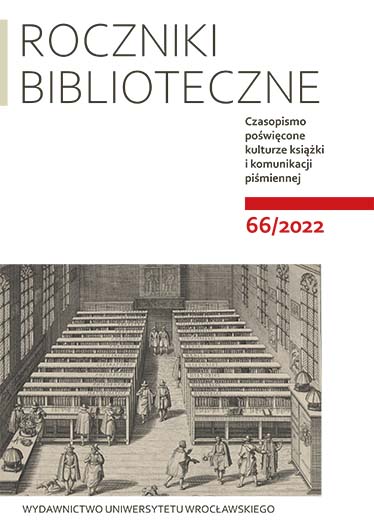Czasopisma literackie i artystyczne uchodźctwa ukraińskiego w drugiej połowie lat czterdziestych XX wieku — aspekt ideologiczny
Literary and artistic periodicals of Ukrainian refugees in the second half of the 1940s: An ideological aspect
Author(s): Larysa HolovataSubject(s): Language and Literature Studies, Sociology of Literature
Published by: Wydawnictwo Uniwersytetu Wrocławskiego
Keywords: Ukrainian refugees; the Artistic Ukrainian Movement (Mystétskyi Ukraínskyi Rukh; MUR); Ukrainian literary and artistic periodicals; displaced persons camps; Dmytro Dontsov; Yurii Sherekh (Shevelov)
Summary/Abstract: This article analyses the ideology and ways of presenting ideological standpoints in literary and artistic periodicals of Ukrainian emigrees in the second half of the 1940s. The creators and publishers of these periodicals were Ukrainian refugees who settled in displaced persons camps in the western occupation zones of Germany and Austria, as well as in Italy, and various emigration centres connected with the structures of such camps. The analysis includes: 1) the evaluation of declarations and program tasks of editorial teams; 2) defining the scope of the actual subordination of published texts to public declarations; 3) indicating the manifestations of ideological orientation in published texts; 4) determining the political parties the leading authors or groups of authors were affiliated with; 5) exploring the ways in which ideological views influenced the editorial policy of refugee camps periodicals. The article discusses periodicals published by the Artistic Ukrainian Movement (Mysté tskyi Ukraínskyi Rukh, MUR) and a few other magazines which, like MUR, proclaimed slogans of apoliticality and independence of emigration political groups (including Zahrava, Litavry, Literaturnyi zoshyt and Orlyk) as well as religious periodicals (Zhyttia i slovo and Dzvin) and nationalist magazines (including Literaturno-naukovyi visnyk and Vezhi). Although the periodicals which emphasised impartiality and ideological independence in their editorial programs were most numerous, it did not mean that the authors who had their texts published therein were ideologically independent. Representatives of artistic circles, like other emigrees, did not shun party life and often shared the views of various political organisations.
Journal: Roczniki Biblioteczne. Czasopismo poświęcone kulturze książki i komunikacji piśmiennej
- Issue Year: 66/2022
- Issue No: 1
- Page Range: 133-152
- Page Count: 20
- Language: Polish

